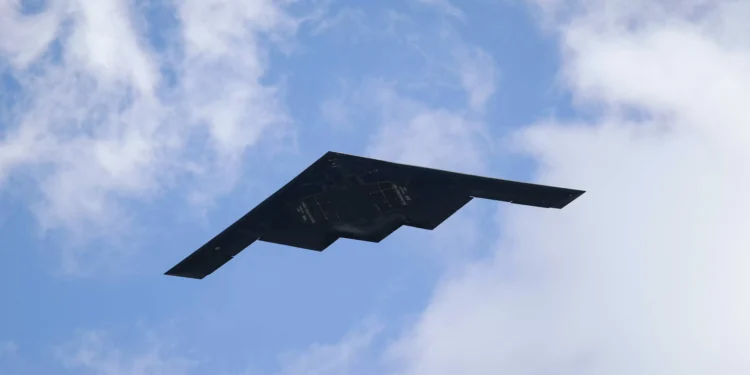The relationship between the United States and Israel has always been a complex one, with both countries sharing a close bond and strong diplomatic ties. However, recent events have put a strain on this relationship, as Israel pushes for military action against Iran’s nuclear program, despite US intelligence stating that Iran is not building a bomb.
The US has long been a staunch supporter of Israel’s security and has often come to its aid in times of crisis. However, the current situation is different, with the US intelligence community providing crucial information that contradicts Israel’s claims about Iran’s nuclear ambitions. This has put the US in a difficult position, as it must balance its commitment to Israel’s security while also considering the implications of a potential war with Iran.
According to US intelligence agencies, Iran has not been pursuing a nuclear weapons program since 2003. This assessment was reaffirmed in a 2018 report by the International Atomic Energy Agency (IAEA), which stated that Iran is in compliance with the nuclear deal signed in 2015. This deal, known as the Joint Comprehensive Plan of Action (JCPOA), was negotiated between Iran and major world powers, including the US, and aimed to prevent Iran from developing nuclear weapons.
Despite this, Israel has continued to push for aggressive action against Iran, including airstrikes on Iranian nuclear facilities. Israeli Prime Minister Benjamin Netanyahu has been a vocal critic of the JCPOA and has repeatedly called for its termination. He claimed that the deal did not prevent Iran from acquiring nuclear weapons and that Iran was secretly continuing its nuclear program.
However, these claims have been debunked by US intelligence and international agencies. So why is Israel so insistent on striking Iran’s nuclear facilities? The answer lies in the complex geopolitics of the Middle East. Israel sees Iran as its biggest threat, given the latter’s support for militant groups like Hezbollah and Hamas. Moreover, Iran’s hostility towards Israel, including its calls for the destruction of the Jewish state, has only added to the tension between the two countries.
Israel has also expressed concerns about Iran’s ballistic missile program and its involvement in conflicts in Syria and Yemen. The fear is that a nuclear-armed Iran would pose a significant threat not only to Israel but also to other countries in the region and beyond. This fear, combined with Israel’s long-standing animosity towards Iran, has led to its calls for military action.
However, the consequences of such a strike would be catastrophic, not only for the region but also for the world. A war with Iran would have far-reaching implications, including disrupting global oil supplies and destabilizing the already volatile Middle East. It could also lead to a wider conflict involving other countries, such as Russia and China, who have vested interests in the region.
Moreover, a military strike on Iran would also jeopardize the fragile nuclear deal and could potentially push Iran to resume its nuclear program, leading to an even more dangerous situation. The JCPOA, although not perfect, provided a framework for monitoring and limiting Iran’s nuclear activities, and abandoning it would only create more uncertainty and increase the risk of a nuclear-armed Iran.
The US, therefore, finds itself in a difficult position. While it continues to support Israel’s security, it also has a responsibility to consider the facts and avoid a potentially disastrous war. As President Joe Biden’s administration reviews its policies towards Iran, it must take into account the intelligence findings and work towards a diplomatic solution rather than resorting to military action.
The recent US strike on Iranian-backed militia targets in Syria indicates that the Biden administration is willing to use force when necessary. However, it is crucial to differentiate between legitimate self-defense and aggressive action that could lead to an all-out war. The US must also continue to engage with all parties involved, including Israel and Iran, to find a peaceful resolution to the current tensions.
In conclusion, the US must stand firm in its commitment to its ally Israel while also upholding its responsibility to maintain global peace and stability. Blindly supporting Israel’s calls for military action without considering the intelligence findings and potential consequences would be a grave mistake. As US intelligence has stated, Iran is not a nuclear threat, and this should guide the US’s approach towards the situation. It is time for all parties involved to prioritize diplomacy and work towards a peaceful resolution rather than risking a destructive war.






